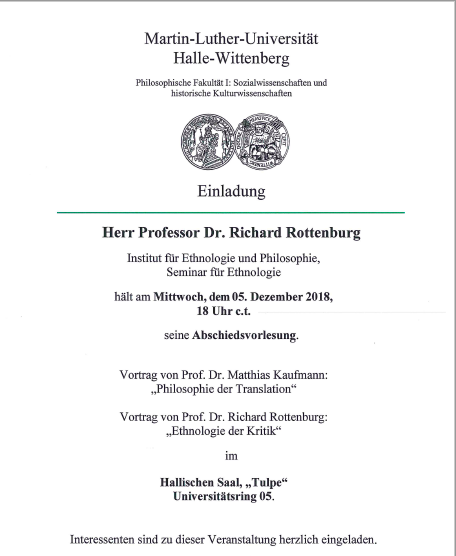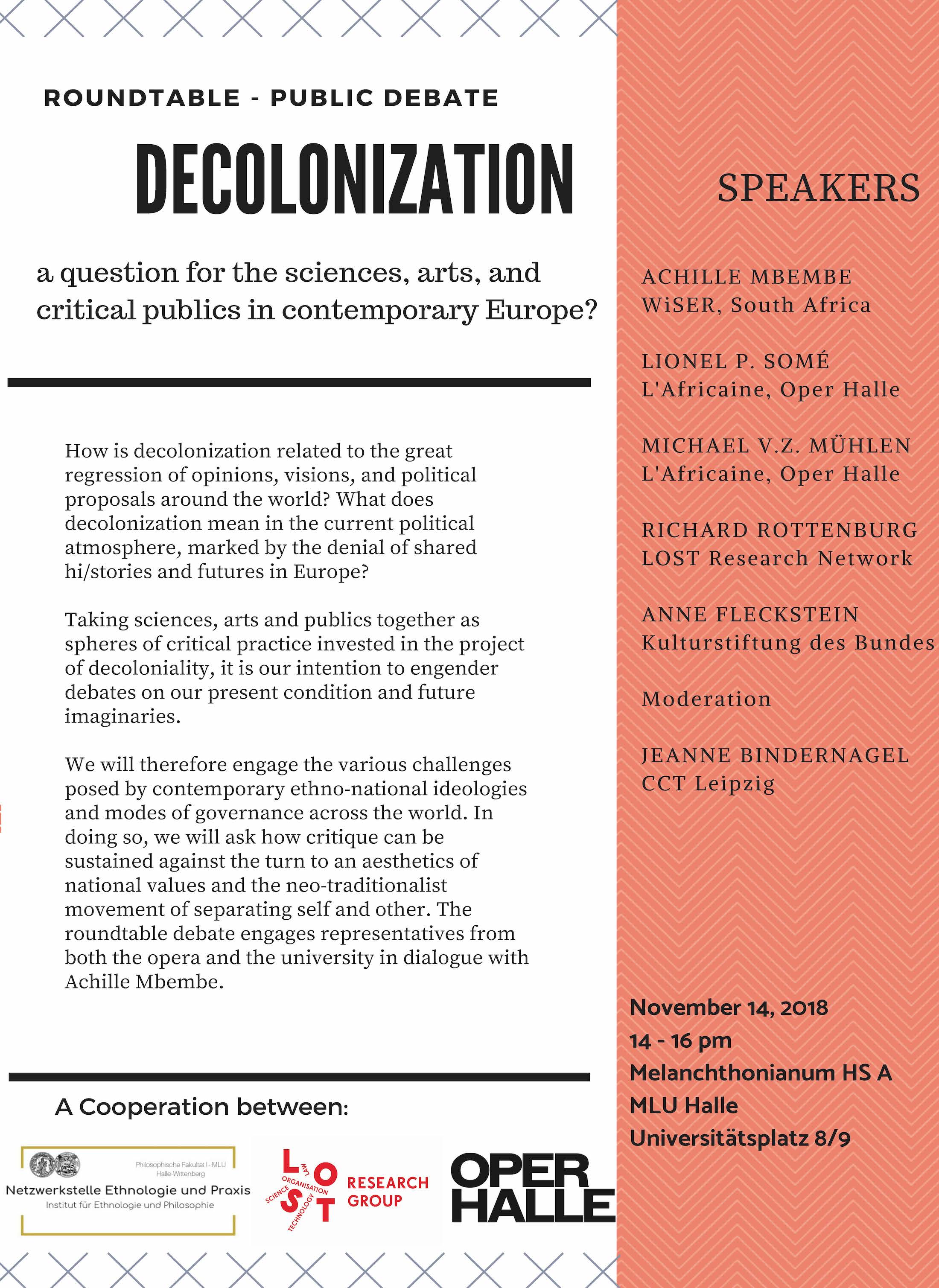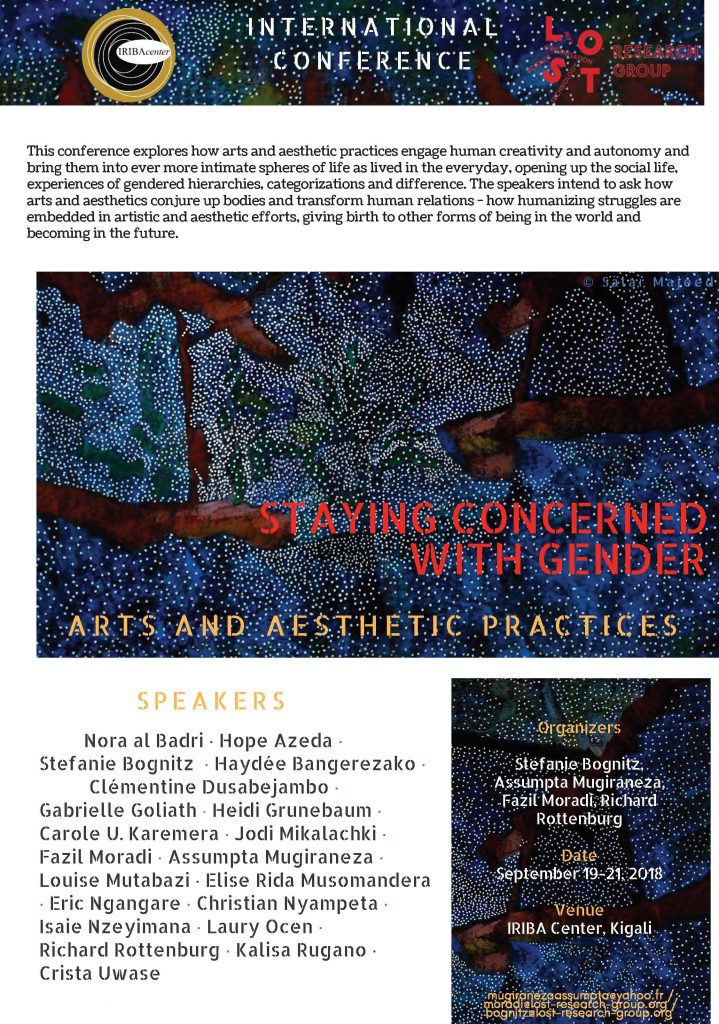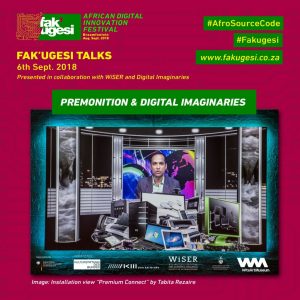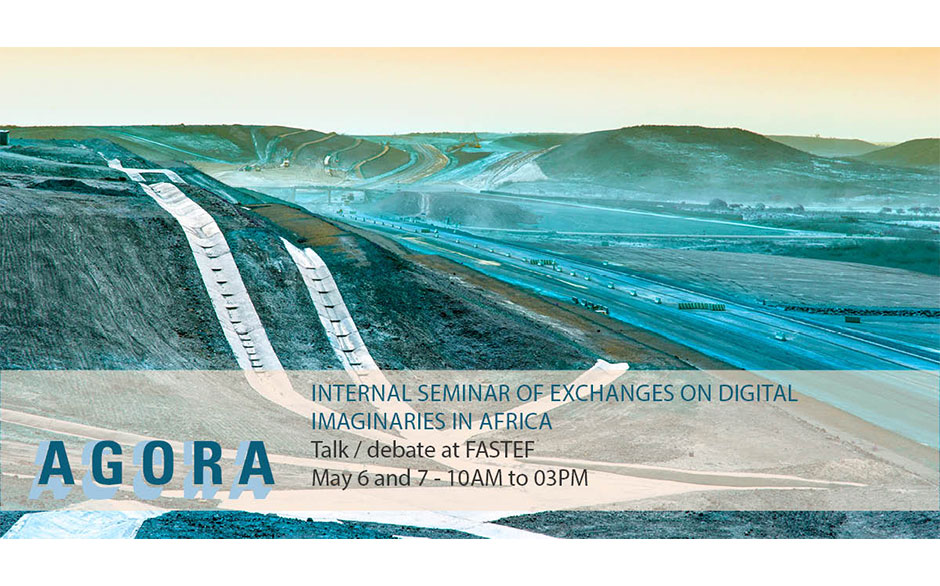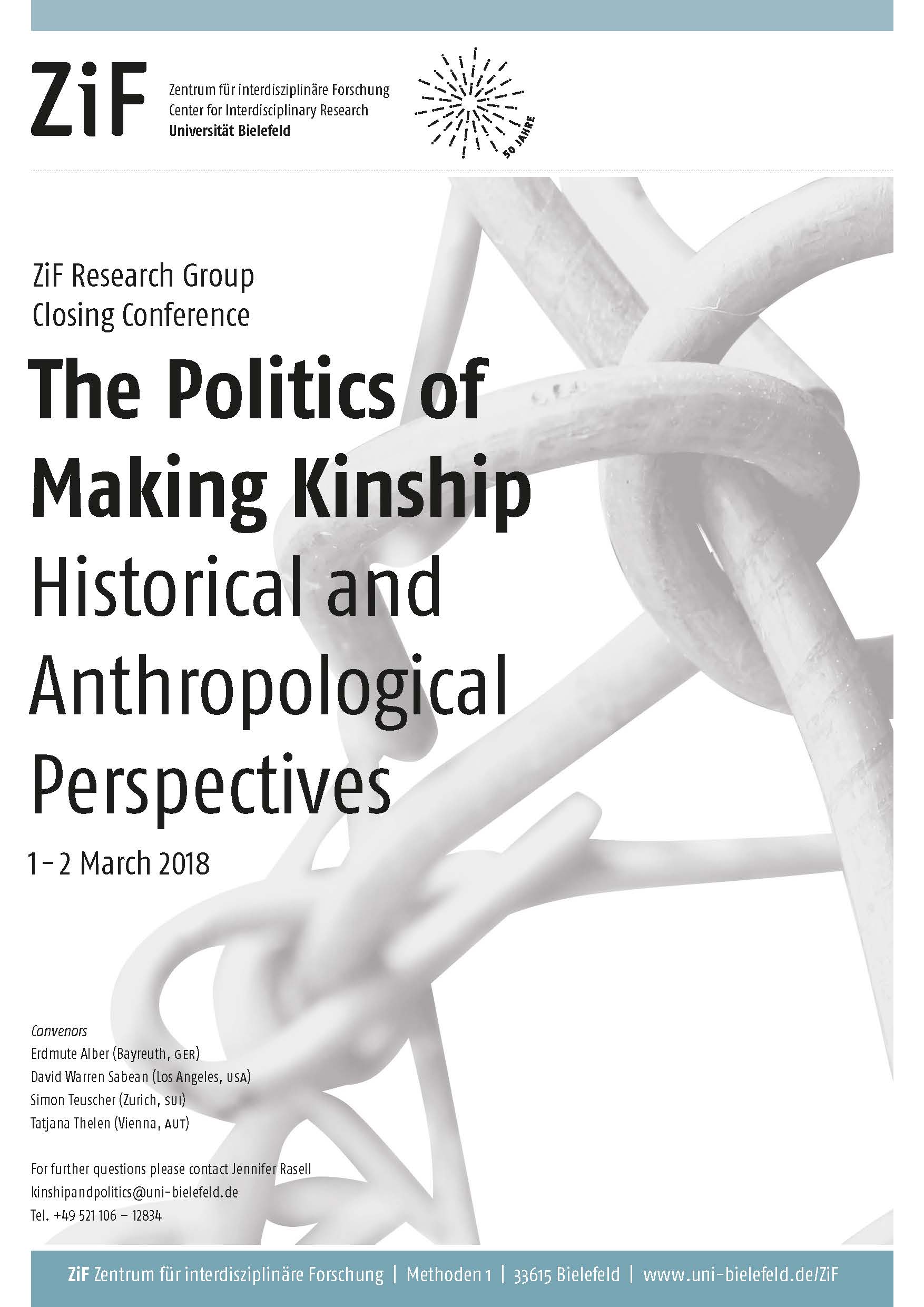Filter by year:
Past events
2018
Presentation by Ralph Buchenhorst at the conference “Envisioning the Future: Zukunftsvisionen für Deutschland und Europa” (Interdisciplinary Conference of the DAAD-funded Centres for German and European Studies) / Panel: “Zukunftsfähigkeit der Gesellschaft – Welche Zukunft hat unsere Weltgesellschaft?”
Abstract:
Societies achieve future viability by pursuing accountability in ordering practices to produce predictability of future global scenarios. In this context, the relation communities and institutions establish to their natural environment plays a pivotal role. The notion of modernity entails that the evolution of rationally organized institutions like capitalism, techno-sciences and legal framings would finally allow us to control global policies and social development in the future. At the same time evidence of climate change, mass migration and heavy extractivism show how limited modern institutions are in their attempt to regulate global social and economic enmeshments. In Latin America and Europe different projects of de-growth and de-colonial approach attempt to present viable alternatives.
The paper seeks to compare two current debates on de-colonial and de-growth alternatives to the ongoing neo-liberal approach to globalization. Sumak Kawsay, the Ecuadorian concept of Full Life or Buen Vivir,is a community based local approach to organize harmonious social relations around the idea that the surrounding eco-systems has similar rights to those of human beings. Conviviality is a project established mainly by German and French intellectuals to develop a new social, moral and political philosophy that does not rely any longer on the idea of infinite economic growth, opposing the global hegemony of finance capitalism and looking for various forms of prosperity without growth. In Germany, both alternatives are being prominently discussed by influential Development Aid policy makers such as the Green Party, BUNDJugend, Heinrich-Böll Stiftung and Brot Für Die Welt.
Through this comparison, similarities and differences between both concepts should become clearly visible. Furthermore, the paper will ask if these new approaches present viable solutions for technologically advanced societies of the West. In a final step, it attempts to situate both debates within the larger question of how to handle counter-hegemonic discourses and practices without an essentialist approach that sells these discourses and practices as a self-legitimizing universal paradigm. To meet the open space format proposed by the organizers, one example of each concept is shortly presented and accompanied by questions regarding their implementation on a larger scale.
Further information on the conference
Venue: University of Halle
Organizer: Richard Rottenburg
There is no doubt that the Islamists’ rise to power in the 1980s has put Sudan at the center of transnational media attention. Consequently, the worldwide resurgence of conservatism and right wing politics reanimated a politics of fear and reproduced new clashing discourses over identity and citizenship. Within these contexts, Amal Hassan Fadlalla examines how the production and circulation of violence narratives about Sudan’s conflicts branded humanity in a neoconservative fashion and shaped the practices of Sudanese activists and their allies in the United States, the Sudan, and online. In many temporary and newly formed humanitarian publics, she argues, the ethno-gendered representation of Sudanese men and women as victims and survivors is transformed into powerful narratives that won them the status of role models within the human rights and humanitarian fields. These representations harden already existing gender, ethnic, and class divisions and highlight the post-Cold War politics and confrontations among different national and transnational actors over the meanings of rights, sovereignty, and global citizenship.
This talk is based on Fadlalla’s newly released book “Branding Humanity: Competing Narratives of Rights, Violence, and Global Citizenship,” in which she treats Sudan—a dispersed nation due to sixty years of violent conflicts—as a site for examining these historical shifts and tensions before the country’s division into two nation states in 2011.
Venue: ZKM | Center for Media and Art
Organizer: Oulimata Gueye, Julien McHardy, Philipp Ziegler
What Africa was, is and could be is characterized by collective practices. If you follow the postcolonial visionary Édouard Glissant (1928-2011), then these »Africas« can be understood as a technically mediated network of relationships, which project far beyond the physical borders of the continent. Rather than a single vision, Africa seems to be more of a relational category, which contains a multitude of contradictory possibilities.
The third chapter of “Digital Imaginaries” in Karlsruhe takes seriously that African positionalities contribute to universals that are legible around the world. Situating the works that emerged in response to Dakar and Johannesburg in Karlsruhe, is to show that they matter in a provincial German town. Not as evidence of otherness, but because here too the questions they raise about possible alternative configurations of the digital are relevant.
Venue: University of Halle
Organizer: Research Cluster "Society and Culture in Motion" and DFG Priority Program 1448 "Adaptation and Creativity in Africa"
The lecture will explore some of the meanings attached to the concept and practice of restitution in precolonial African systems of thought. It will dwell in particular on those traditions that considered the most damaging wrongs as those causing harm to one’s ‘vital force’. We will elicit the juridical underpinnings of the right to restitution and revisit the relation between ‘persons’ and ‘objects’ it presupposed.
Achille Mbembe is currently Research Professor at WiSER, University of the Witwatersrand, Johannesburg, South Africa. He obtained his Ph.D. in history at the University of Sorbonne in Paris, France, in 1989. He subsequently obtained a D.E.A. in political science at the Instituts d’études politiques also in Paris. He has held appointments at Columbia University in New York, Brookings Institute in Washington, D.C., University of Pennsylvania, University of California, Berkeley, Yale University, Duke University and at the Council for the Development of Social Science Research in Africa (CODESRIA) in Dakar, Senegal. Today, Achille Mbembe figures as the most renown philosopher, political theorist, and public intellectual of the African continent and won several outstanding prizes, also in Germany. His most important works are: Les jeunes et l’ordre politique en Afrique noire (1985) ; La naissance du maquis dans le Sud-Cameroun (1920-1960); Histoire des usages de la raison en colonie (1996); De la postcolonie. Essai sur l’imagination politique dans l’Afrique contemporaine (2000); Sortir de la grande nuit : Essai sur l’Afrique décolonisée (2003); Critique de la raison nègre (2013); Politique de l’inimitié (2016). Most of his books have been translated into English and German.
Organizer: Richard Rottenburg
In this weekly colloquium we discuss participants’ work in progress and selected authors. Since the number of participants is restricted, new participants are kindly requested to approach Richard Rottenburg well in advance.
Current participants:
Konstantin Biehl, Stefanie Bognitz, Lorenz Gosch, Armin Höland, David Kananizadeh, Maria Kuzcera, Siri Lamoureaux Margarita Lipatova, Laura Matt, Fazil Moradi, Sung-Joon Park, Richard Rottenburg, Tabea Scharrer, Timm Sureau, Alena Thiel, Bertram Turner, René Umlauf
Venue: University of Vienna
Organizer: Tatjana Thelen, Kirsten Rüther, Peter Schweitzer
The Vienna Ethnography Laboratories (Ethnolabs) take up current topics of social scientific debates that pose challenges for ethnographic research. They offer a unique forum for interdisciplinary discussion and development of methodological reflection of young researchers with senior scholars.
Guest Scholars:
Prof. Jörg Niewöhner, Professor for Urban Anthropology and Human-Environment Relations at the Institute for European Ethnology (Humboldt University, Berlin)
Prof. Antina von Schnitzler, Associate Professor of International Affairs (The New School, NY)
Venue: Wits Art Museum
On 6th September between 10:00 and 17:00 at Wits Art Museum a workshop with talks and discussions is hosted by by Fak’ugesi Festival in association with the artistic research project Digital Imaginaries. The workshop and the related art exhibition at WAM are the second leg of a three city project, which started in Dakar, Senegal in May and will conclude in Karlsruhe, Germany in November 2018. The workshop is also part of Fak’ugesi Talks: Premonition and Digital Imaginaries – a series of talks that explore how digital data practices shift how uncertain futures are anticipated.
The workshop takes place alongside the exhibition to engage an exploratory debate on questions surrounding artistic research, digital data, and decolonisation in a globalised information society. Program will include a tour of the exhibition and a focus on the subject of vernacular algorithms, followed by a series of talks with leading theorists, philosophers and artists including Sarah Nuttal, Achille Mbembe, Richard Rottenburg, Oulimata Gueye and more.
Venue: Fourah Bay College, University of Sierra Leone
Organizer: Sylvanus Spencer
The “Trust in Medicine after EVD Epidemics“ held its stakeholder workshop for the introduction of anthropology teaching at Fourah Bay College, University of Sierra Leone on July 27, 2018. We are looking forward to an inspiring and novel course in anthropology in 2019 at Fourah Bay College.

Organizer: Stefanie Bognitz and Fazil Moradi
Panel “Archive, Promise, and the Future in African Contexts” at the African Studies Association in Germany (VAD e.V.) Conference, 27-30 June 2018 in Leipzig, Germany.
Panel Abstract:
This panel addresses the relation between promise, archive, and the future, and how the archive forms memory and creates a tension between the past and the living present, the past and the future, and between the actual and the virtual in African contexts. The structure of the archive not only preserves but shapes memory and is always future-oriented. As Derrida explains in Archive Fever: “the archivization produces as much as it records the event.” We are interested in how the archive embraces contradictory experiences of irredeemable losses in the past and the future hope. In African contexts, the archive continues to remain instrumental in bringing to the fore these contradictory experiences and at the same time lies in the ‘experience of the promise.’
We are specifically interested in promises and well as challenges of the archive in regard to access to the past, the forming of memory and imagination of history, postcolonial and decolonial knowledge practices, the establishment of evidence and facts, the workings of denial and denunciations based on archival work and its prospect of comparison, the possibilities and limits of practices of critique.
Contributions should trace some of the connections and disconnections, conceptions and misconceptions, access and exclusion regarding knowledge and comparison in relation to archival practices. Specific interest will be paid to forms of organization, writing, technologies of inscription, laws, everyday practices and narratives that accompany the archive and its quest toward memory making, knowledge preservation, but also ignorance, denial, or forgetting.
Organizer: Sandra Calkins & Kerry Holden
Panel “Infrastructures’ Intimacies: Failure, Affectivity, and Promises” at the African Studies Association in Germany (VAD e.V.) Conference, 27-30 June 2018 in Leipzig, Germany.
In recent years, significant contributions were made to research on infrastructure, advancing technopolitical critiques and generating insight into its biopolitical dimensions. However, less attention has been paid to the effects of sedimentation of infrastructural projects that layer up over different time periods, evoking memories of failure and success and haunted by the fantasies of past generations. The foundations of many physical infrastructures in the Global South were laid in colonial times, part of modernist promises of development and later the focus of centralizing efforts of postcolonial state-building. Good, efficient infrastructure conjures an ideal image of being impersonal and highly standardized across time and space. Yet, infrastructural breakdown has been a common feature of many African sites, and the focus in scholarship has turned to exploring ‘people as infrastructure’, probing how people stand in for defunct artefacts. We contend that the gaps and breakages in infrastructure experienced in many African countries provoke experiences that merit further historical and ethnographic inquiry. Recent scholarship has explored the affective dimensions of infrastructure. We extend this inquiry to understanding how failure is experienced personally; humbling, harming, and disappointing people as they carry out their work; forcing them to find alternate solutions to maintaining movement in what are imagined and, presumably desirable, circulatory systems. We invite papers that explore how people experience the remains of infrastructure. How do people reconcile failure with past and future promises? What fantasies emanate from the historical layering of discontinuous infrastructural projects and the leftovers of empire? And what intimate relationships form in infrastructural gaps?
Organizer: Richard Rottenburg & René Umlauf
Panel “Lifeworld and Technology” at the African Studies Association in Germany (VAD e.V.) Conference, 27-30 June 2018 in Leipzig, Germany.
Technology gains increasing relevance in most African countries. Agendas of the largest multi- and bilateral organizations promote the use of innovative technologies and emphasize the hopes and benefits a more (technologically) connected Africa could bring to the rest of the world. Even beyond development scenarios, the everydayness of many African citizens is strongly affected by technology. Be it in the form of concrete devices like a cell phones or more in form of complex networks or systems e.g. water, sanitation or electricity infrastructures – the everyday lifeworld of most Africans has been significantly shaped by the use of as well as exposure to modern technologies. In this panel, we will explore the inescapable intertwinement of ‘technicization’ and the ‘lifeworld’ – on the topic of which the German philosopher Hans Blumenberg points out that the two cannot readily be treated apart, and that ‘technicization is lifeworld’. The panel calls for contributions that relate the technology/lifeworld complex to persisting questions of rationalization and standardization – as these are the legitimizations and effects of the infrastructures of modernity, deeply implicated in its institutions, in its administrations and bureaucracies, forecasting, and surveillance systems. We invite conceptual as well as empirical contributions that focus on but are not limited to questions like:
- How can we study the relation between technology and lifeworld? What are the methodological implications/challenges?
- What are the onto-epistemic insights/values of thinking technology as integral part the lifeworld?
- How can these insights be related to already existing concepts like e.g. adaptation and translation?
Organizer: Uli Beisel & Sung-Joon Park
Panel “Infectious Connections: Humans, Nonhumans, and Life in the Global Health in Africa” at the African Studies Association in Germany (VAD e.V.) Conference, 27-30 June 2018 in Leipzig, Germany.
Since the Ebola epidemic in West Africa 2014-2016, zoonotic diseases are acutely on the radar of policy makers, politicians, and the public. Zoonotic diseases, transmitted from animals to humans, are predicted to be on the rise, with rare and previously less known infectious disease outbreaks occurring more frequently than before. Such epidemics are horrifying and exceptional, but presumably part of greater ecological transformations, which significantly change how animal life, human life, and the environment interact. This panel invites scholarly work within African Studies on these emerging and emergent infectious connections and what it means for the study of health and diseases by exploring interactions between humans and animals, humans, and micro-organisms as well as the lived or self-destructive practices through which changing environments are inhabited. We are also interested in socio-cultural analysis of the interconnections between humans and fragile, fragmented, or ailing public health infrastructures; technological innovations to build ‘better’ or change ‘natural’ environments. In specific, we invite papers on:
- the global circulation of zoonotic diseases,
- the political ecologies of such harmful multispecies encounters,
- the political economy of disease emergence, clinical and epidemiological research into neglected diseases,
- the modes of production of data as well as medicines,
- preparedness practices and biosecurity measures more generally.
Venue: Seminar für Ethnologie, Reichardstr. 11
Organizer: Richard Rottenburg
In this weekly colloquium we discuss participants’ work in progress and selected authors. Since the number of participants is restricted, new participants are kindly requested to approach Richard Rottenburg well in advance.
Current participants:
Konstantin Biehl, Stefanie Bognitz, Lorenz Gosch, Armin Höland, David Kananizadeh, Maria Kuzcera, Margarita Lipatova, Laura Matt, Fazil Moradi, Sung-Joon Park, Richard Rottenburg, Tabea Scharrer, Timm Sureau, Alena Thiel, Bertram Turner, René Umlauf

